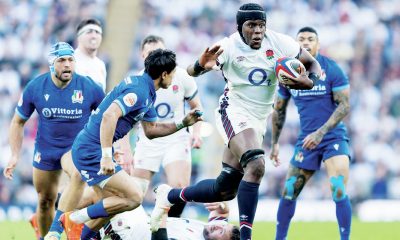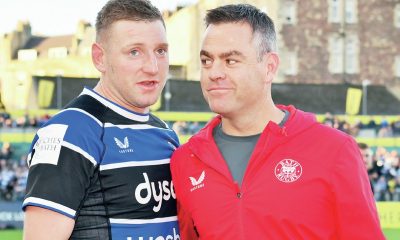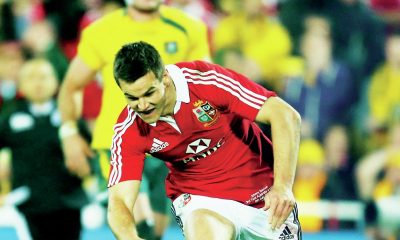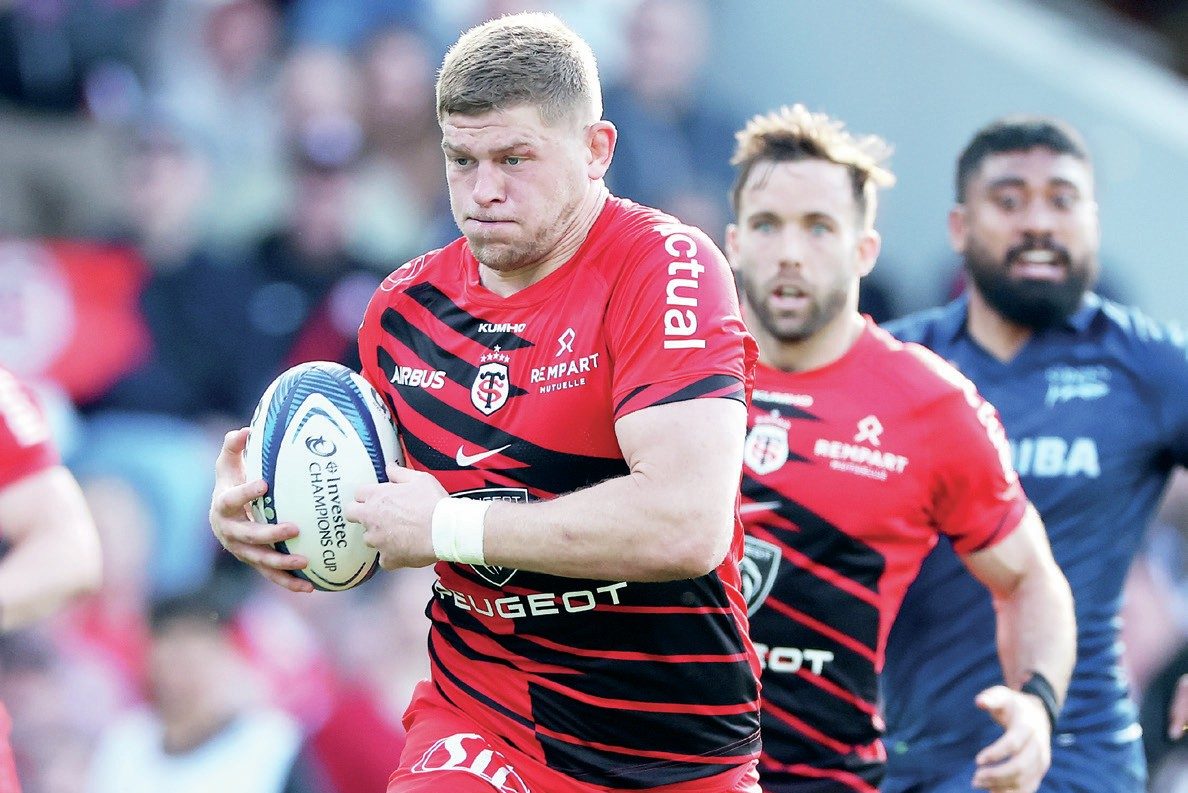
 Taulupe Faletau is in the spotlight following Billy Vunipola‘s withdrawal from the Lions tour because No.8 is such an influential position. They are part of the spine of the team and are powerful figures in the history of the Lions, and generally big and athletic with good ball-playing ability.
Taulupe Faletau is in the spotlight following Billy Vunipola‘s withdrawal from the Lions tour because No.8 is such an influential position. They are part of the spine of the team and are powerful figures in the history of the Lions, and generally big and athletic with good ball-playing ability.
Billy has made a huge contribution to Saracens and England this season, and his injury is a great shame. But in these circumstances you just have to get on with it – and part of that is recognising how good Taulupe Faletau can be.
The other upside is that at least the Lions have not lost Vunipola after he was fully integrated into the squad and had become an influential part of it in terms of training and tactical preparation. Billy hasn’t been involved other than to attend the kit day, and therefore the team dynamic has not been affected. Detailed knowledge of what the Lions would have lost if he had gone to New Zealand and been fit and firing before being injured would be a much more damaging psychological blow.
In any comparison of the two, Faletau is more the athlete and Vunipola more the powerhouse, with Billy carrying more in attack at close-quarters and Taulupe being better in the line-out and having more mobility in terms of defensive cover.
My hunch is that Eddie Jones would employ Faletau in a different way to Warren Gatland, who requires him to play in quite a structured style for Wales. He is underutilised and my hunch is that Wales get only 70 to 75 per cent out of him as a result.
Billy Vunipola has the unique capability of being able to beat three defenders from a standing start, whereas Taulupe Faletau will beat one, or maybe two. But, while you may miss Billy’s X factor in terms of go-forward, Faletau is a multi-talented athlete and ballplayer who can do everything.
That is why he should be given the same room to roam at No.8 as Kieran Read has for New Zealand. I truly believe that if Faletau is given a free-ranging role he can become a major influence on this tour.
It may be that No.8s were more influential in the amateur era because of the importance of the scrum as an attacking platform and their role at the base of it as tactical decision-makers. Take Dean Richards, who I played alongside on the 1989 and 1993 Lions tours. Ball control at the base of the scrum was crucial, and Deano would decide whether to let the ball out, or link with the scrum-half, or pick-and-go himself.
Tim Rodber won the No.8 Test shirt in the 1997 series in South Africa, and he was another impressive player. Rodber was a hard boy who liked the physicality. He was tall – about 6ft 6ins – good at the line-out, and would lean into contact off a short stride while using his long reach to fend off tacklers.
However, you only have to look at No.8s of the quality of Read, Louis Picamoles, Billy Vunipola and Faletau to recognise that they have become as influential as ever.
Head coach Gatland will also be expecting James Haskell to respond to his late call-up to replace Vunipola by becoming a good tourist. Haskell has yet to find the form he showed during the 2016 Six Nations and last summer’s England tour of Australia, and he didn’t catch the eye in last weekend’s Premiership semi-final against Leicester.
When you get injuries as an older player sometimes it takes a long time to rediscover form, and that seems to have happened to Haskell. However, the Premiership final and the early games in New Zealand will give him a chance to stake a claim and say ‘I’m back’.
I got called up to the 1989 squad for an injured player, and I’m sure that his outlook will be the same as mine – which is that you have the same chance of winning a Test place as anyone.
The great thing about Haskell is that he seems to be involved in everything, and while Vunipola is a loss on the field, the Wasps flanker makes a big off-field contribution. He can have a laugh – including at his own expense – and doesn’t take himself too seriously. That should make him a good influence in the squad coming together.
However, I don’t see Haskell as a No.8, and the Wasps flanker will be happy to have been chosen ahead of not only Jamie Heaslip, who had a good Six Nations for Ireland, but also his clubmate, Nathan Hughes. If either of them had been picked I could see why, because they are more like-for-like No.8 replacements – but Haskell has the versatility of being able to cover all three back row roles as well as the ability to be a super tourist.
CJ Stander is also billed as being versatile enough to play No.8, but this season he has been the standout No.6 in international rugby, and that’s where I would play him for the Lions. Stander’s carrying around the edges is so impressive that you want to get him on the ball rather than dropping back for kicks as a No.8 and running from deep.
Ross Moriarty is a young player who really can fit in anywhere in the back row, and he could emerge as Faletau’s main rival for the 8 shirt. I hear he trains and plays the same way; that he is unrelenting and will not hold back. That will add some spice to training and be an awakening if there’s anyone in the back row who wants to cruise, because Moriarty wants the Test jersey, full stop.
The problem he faces is that he will have to get past Faletau first, and that will not be easy. My hope is that we see more of Faletau as an attacking carrier for the Lions than we do when he is with Wales. I was so pleased when he joined Bath, and equally disappointed when he was ruled out by injury so soon – but having recovered he finished the season strongly and is fresh enough to have plenty left in the tank for New Zealand.
If Faletau is allowed to carry 14 times a game like Billy Vunipola, he will have a different impact on New Zealand, but one which is equally effective. Taulupe Faletau is a back in a forward’s body, and could be every bit as dangerous as a wide receiver taking a kick-pass as anything New Zealand have. He’s just got to be let loose.


Latest News
Super Rugby Americas: Round Ten Review

British and Irish Lions
British and Irish Lions: Biggest winners and losers from Andy Farrell’s selection
























You must be logged in to post a comment Login